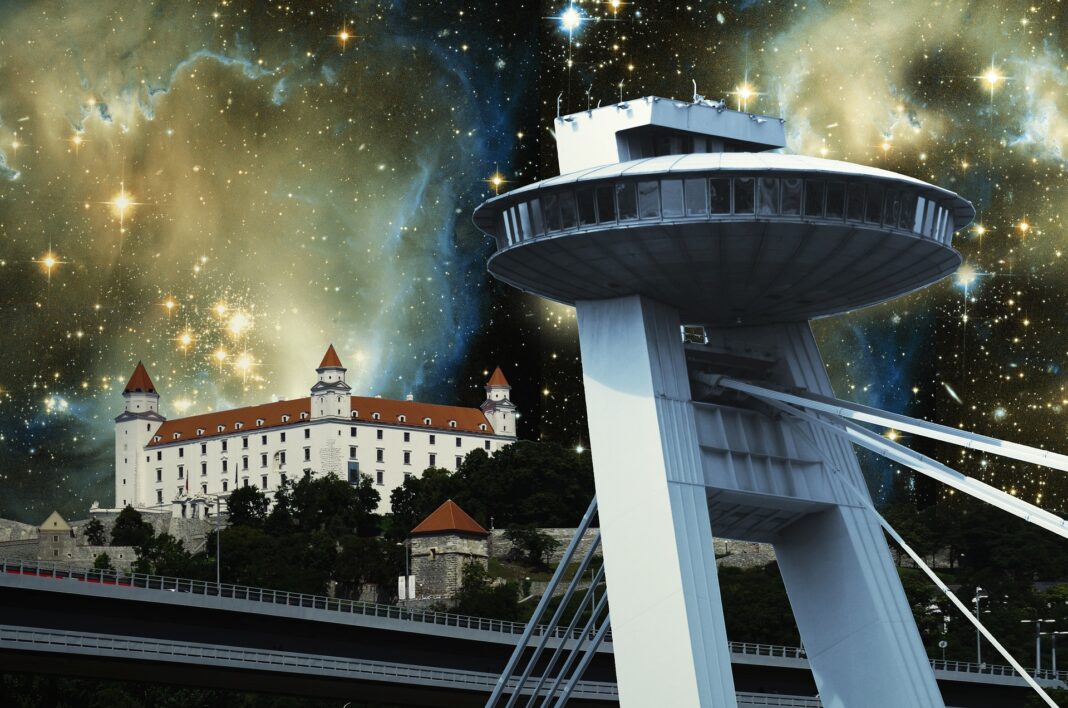Author: Vojtěch Berger, HlidaciPes.org, Czech republic
When Chinese President Xi Jinping went on a European tour this May, he skipped Slovakia. Instead, he confirmed that China currently relies mainly on Hungary and Serbia in Central Europe and the Balkans. Yet the current Slovak government of Robert Fico is once again dreaming of Chinese investment – despite the unfulfilled expectations that Chinese investment promises have brought, for example, in the Czech Republic.
Slovak Prime Minister Robert Fico was due to visit China this June. But in May he was the target of an assassination attempt and the visit was put on the back burner for now. However, two projects that Slovakia wants to propose to China for possible cooperation under the so-called PPP (public-private partnership) were discussed in advance.
The first is the modernisation of the chronically congested Bratislava-Komárno single-track railway, a key link between parts of southern Slovakia and the capital. The second is a package of several hundred road bridges that are in poor condition and Slovakia does not have the funds to repair them immediately.
Dams and motorways that don’t stand
Since about ten years, there has been talk that the Chinese could participate in the completion of Bratislava’s motorway bypass or build a hydroelectric power plant on the Ipeľ river. So far, to no avail. But elsewhere, Chinese investors have put down roots in Slovakia.
In recent months, Fico’s government confirmed that a factory for the production of batteries for electric vehicles will be built in the southern Slovak town of Šurany by the Chinese manufacturer Gotion in consortium with a Slovak partner.
“We are bringing the second largest foreign investment in history to Slovakia,” said Economy Minister Denisa Saková. The investment is expected to reach 1.23 billion euros (CZK 30.6 billion).
Shortly afterwards, the Chinese company Jiangsu Xinquan Automotive Trim, a manufacturer of automotive interior parts, announced its arrival on the Slovak market, specifically in the eastern Slovak industrial park CTPark in Prešov.
However, in a press release, the company did not specify the amount of the investment, which, according to earlier estimates, could be around EUR 20 million (roughly half a billion crowns).
Beijing as a replacement for Brussels
But let us return to the Chinese president’s visit to Europe this spring. In addition to France, he visited the aforementioned Serbia and Hungary, thus confirming who Beijing’s current favourites in Europe are (not only in terms of investment).
For a long time, the Hungarian government only talked about Chinese investment, as did Czech ex-president Miloš Zeman. He originally promised investments of up to CZK 230 billion, but only a fraction of that has materialised. Moreover, as in the Czech Republic, the Chinese money in Hungary originally went mainly into acquisitions, not into job creation.
“Overall, China has invested something between two and three billion dollars (up to about CZK 64 billion) in the country, that’s quite a lot. But most of that money flowed in before the Orbán government took office in 2010. In the last, say, six years, we have not seen any major Chinese investment in Hungary,” Tamás Matura, an analyst at the Korvín University in Budapest, described the state of Chinese investment to HlídacíPes.org in 2018. Even then, China invested more than twice as much in Hungary as in the Czech Republic.
But today we are several years further away. Hungarian Prime Minister Viktor Orbán has significantly deepened the disputes between Hungary and the European Union and, in turn, is trying to make the most of unbroken ties with Moscow and Beijing. In the case of China, this is bearing fruit – the Chinese electric car manufacturer BYD is also building its next plant in Szeged after its electric bus factory in Komárom. Another Chinese “battery factory” is springing up near Debrecen.
Fast tracks that grow slowly
Hungarian Foreign Minister Péter Szijjártó announced after the Chinese president’s visit this year that China could be involved in other infrastructure projects, such as the construction of a freight railway line around Budapest or a rail link between the Hungarian capital and its airport.
But it is the railway that shows how Chinese investment promises sometimes fall short of reality. Already ten years ago, Hungary, together with neighbouring Serbia, concluded an agreement with China to modernise the Budapest-Belgrade line.
This was to be part of China’s Belt and Road project, through which Beijing has been spreading its economic influence around the world in recent years. The new, partly high-speed line was to link the Greek port of Piraeus (also controlled by the Chinese) and Central Europe. But it is still not finished.
In addition, Chinese companies operate the largest copper mine and steel mill in Serbia and are involved in the construction of roads and highways. They are ignoring concerns about serious negative environmental impacts.
„Are we not violating human rights in Europe?“
The authoritarian leaders of Hungary and Serbia, Viktor Orbán and Aleksandar Vucic, do not worry about the observance of human rights in China, the censorship there or the persecution of the Uighurs in China’s remote regions. Thanks to this, their trade relations with China are flourishing.
Viktor Orbán, in particular, sees Chinese investment as a means of replacing the Euro funds that are threatened by his constant disputes with the European Commission. And Slovak Prime Minister Robert Fico has already made it clear that he wants to take the same pragmatic approach to China:
“China is a country that is a stabiliser of world peace. What can I say to them? Excuse me, are you violating human rights? They’ll look at me like I’m crazy. Let’s be realistic. Aren’t human rights violated in Europe? (…) What right do we have to dictate to someone – you are bad and I am good?” he said this spring.
Fico plans to make the trip to China, which he had to postpone because of the assassination, this autumn.

